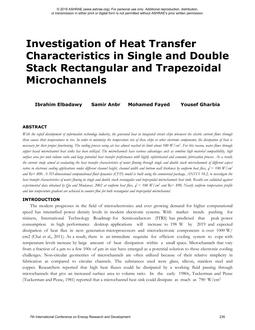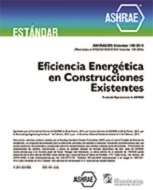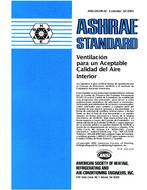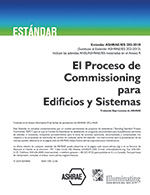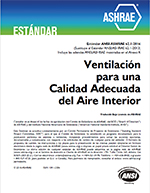Description
With the rapid development of information technology industry, the generated heat in integrated circuit chips whenever the electric current flows through them causes their temperatures to rise. In order to minimize the temperature rise of these chips or other electronic components, the dissipation of heat is necessary for their proper functioning. The cooling process using air has almost reached its limit about 100 W/cm2. For this reason, water flows through copper based microchannel heat sinks has been utilized. The microchannels have various advantages such as combine high material compatibility, high surface area per unit volume ratio and large potential heat transfer performance with highly sophisticated and economic fabrication process. As a result, the current study aimed at evaluating the heat transfer characteristics of water flowing through single and double stack microchannels of different aspect ratios in electronic cooling applications under different channel height, channel width and bottom wall thickness by uniform heat flux, q = 100 W/cm2 and Re= 800. A 3D-dimensional computational fluid dynamics (CFD) model is built using the commercial package, ANSYS 18.2, to investigate the heat transfer characteristics of water flowing in single and double stack rectangular and trapezoidal microchannels heat sink. Results are validated against experimental data obtained by Qu and Mudawar, 2002 at uniform heat flux, q = 100 W/cm2 and Re= 890. Nearly uniform temperature profile and low temperature gradient are achieved in counter flow for both rectangular and trapezoidal microchannel.
Citation: 7th International Conference on Energy Research and Development
Product Details
- Published:
- 2019
- Number of Pages:
- 8
- Units of Measure:
- Dual
- File Size:
- 1 file , 1.8 MB
- Product Code(s):
- D-2019ICERD7-029
